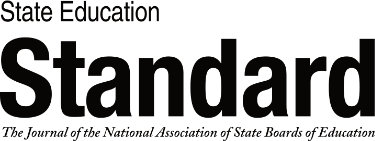Even before the pandemic slowed learning for many, only 39 percent of California students demonstrated proficiency on the state math assessment. During the pandemic, the proportion of math-proficient students fell to one-third. At the same time, the STEM workforce faces shortages and a lack of diversity, which call into question the longstanding practice of filtering the majority of students out of advanced pathways in math, often from a young age.
To address these problems, a committee of California math educators proposed changing the approach to teaching math based on what research has revealed about what will improve math achievement and engagement. In 2021, California started the process of revising the framework that guides math instruction.
Mulling Changes to Math Instruction
Also In this Issue
The Impact of COVID-19 on Math Achievement
By Jennifer Sattem, Matt Dawson and Elizabeth PeyserWithout urgent attention, the problem of unfinished learning will compound as students advance to later grades.
High-Dosage Tutoring
By Beth SchuelerStrong evidence points to equity and well-being benefits from well-designed programs.
Advancing Science Instruction
By Bobbi NewmanState boards can lean into efforts to boost K-12 science literacy and beef up access to high-quality, inquiry-based education.
The Urgent Need for Tailored Math Instruction
By Joel Rose and Michael WatsonStates can shift away from grade-level myopia to help students catch up.
10 Lessons Learned from the Science Classroom
By Ryan FuhrmanExperience with high-stakes accountability informs teacher's standards setting on the state board.
Mulling Changes to Math Instruction
By Jo Boaler and Jennifer Langer-OsunaA framework proposed in California seeks to boost achievement by increasing the engagement of all students.
Achieving Equity and Excellence in Mathematics Teaching
By Yasemin Copur-GencturkStates should revamp how teachers are equipped to deliver effective instruction.









 i
i
 i
i
 i
i